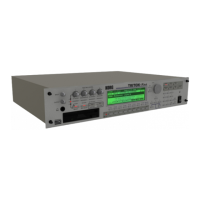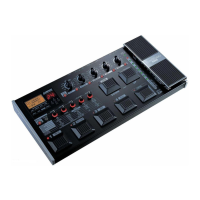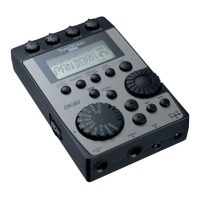8–2: Edit E1 (Edit Master Effect 1 [Modulation])
53
8–2: Edit E1 (Edit Master Effect 1 [Modulation])
8–3: Edit E2 (Edit Master Effect 2 [Reverb/Delay])
Here you can make settings for master effect parameters.
This will be displayed when you have selected a modulation-type or reverb/delay-type effect for
[Modulation] or [Reverb/Delay] in “8–1a: Master Effect Setting”.
Effect dynamic modulation is controlled on the Global MIDI channel.
For details on the effect parameters, refer to the separate Effect Guide.
▼ Page Menu Command
8–2A: Write Program
This writes the edited program into the currently selected program number.
Be sure to write important programs. If you turn the power off or select another program before
writing the data, it cannot be recovered.
Refer to Basic Guide page 23, “9. Writing a Program or Combination”.
Effect Name
Page Menu
8–2A
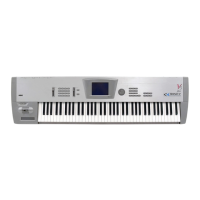
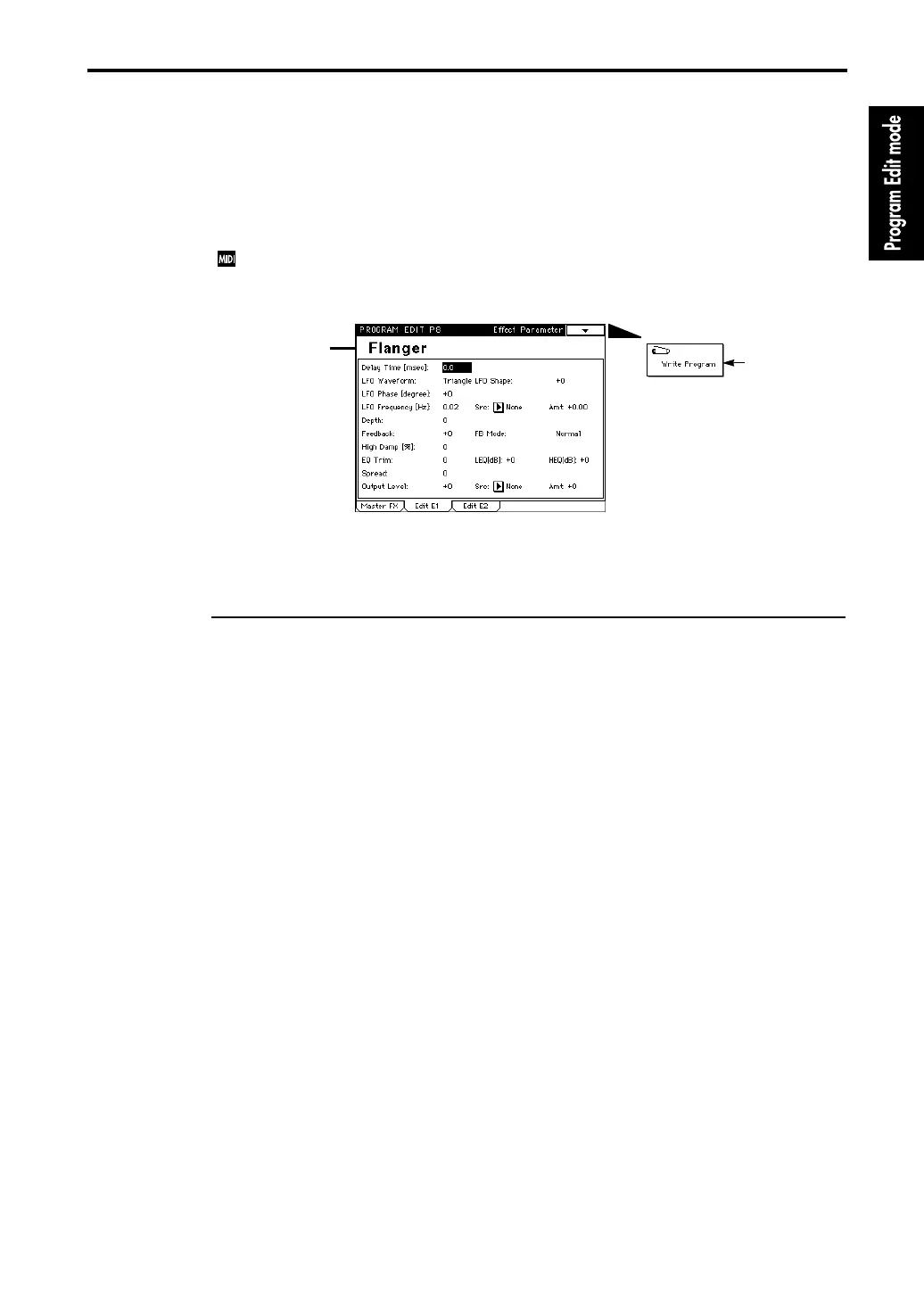